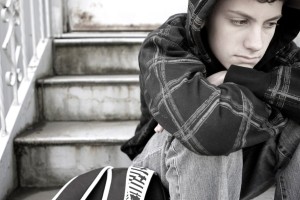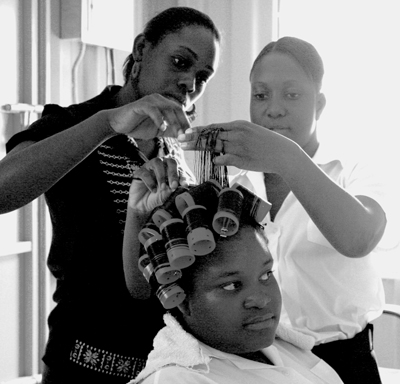The JuST Response Report: Analyzing state statutory protective responses
Shared Hope International’s JuST Response is a survivor informed, protection-oriented research project that combines research on services for domestic minor sex trafficking victims with an analysis of state statutory protective responses. It serves to deepen knowledge of the interrelationship of statutes, systems, and services in developing state level responses to juvenile sex trafficking victims. By merging research on implementation and policy analysis, the JuST Response seeks to broaden the research in this emerging area to inform legislative efforts and the implementation of existing responses.
“The JuST Response is bringing two very important initiatives for trafficked women and children together…What we are looking at today is this:Should we have to lean towards giving her protection or should we have to lean towards giving her restoration. We are saying we want both. A JuST Response says both. Let’s have a system that protects her. That makes sure she gets the services she is entitled to as a victim of a violent crime, but let’s make sure also that the justice system, the courts, the court room system, all of those things are aligned to protect her and give her justice. We believe a just response harmonizes those two vital, important issues in this fight against child trafficking.”
– Linda Smith, President & Founder of Shared Hope International, JuST Response Experts Council 2015
Experts Council
Last week, Shared Hope International assembled nearly forty experts, advocates, and survivors of sex trafficking from around the country at the George Washington University Library in the heart of Washington, DC. In its inaugural JuST Response Experts Council meeting, Shared Hope previewed the JuST Response State System Mapping Report that will be released next week (view the webcast). The all-day event allowed the country’s foremost experts to join Shared Hope in identifying priority issues that need to be addressed to provide those victimized through sex trafficking a chance at restoration.
Federal laws, including the Trafficking Victims Protection Action (TVPA) of 2000, deem any minor engaged in a commercial sex act as a victim of sex trafficking. In some states, state laws are only beginning to recognize the crime of sex trafficking as it applies to minors. The JuST Response project merges Shared Hope International’s Protected Innocence Challenge research, the 2012 and 2013 National Colloquiums, the resulting Traffic Stop and National Colloquium 2012 reports and findings from the field, including Shared Hope partners and the Restorative Services Working Group. The JuST Response research identifies common barriers and emerging trends in service responses to juvenile sex trafficking victims by examining noteworthy statutory responses and implementation of these statutes to connect youth to services. Three critical elements comprise a JuST Response: Statutes, Systems and Services.
- Statutes: Should direct survivors away from delinquency outcomes, make them immune from prostitution charges, and offer access to specialized services
- Systems: Interagency collaboration, specialized training, identification and immediate and ongoing assessments are vital
- Services: An array of specialized services, safe and nurturing environments, and individuals wrap-around continuum of care should be available for survivors
The JuST Response State Mapping report analyzed eight states separated into four categories:
- States that have statutes that allow for immunity from prostitution related charges and mandatory referral to an alternate process: Illinois and Kentucky
- States that provide immunity from prostitution related charges without a referral to an alternate response: Minnesota and Tennessee
- States that do not provide immunity buy require a law enforcement referral to a specialized response: Kansas and Florida
- States that do not provide immunity but specialized diversion process for juvenile sex trafficking victims: Washington and Ohio.
The JuST Response State Mapping Report further recognizes that many states and jurisdictions are implementing components of a JuST Response while still lacking protective response laws. Two main goals of a JuST Response are to avoid re-traumatization and guarantee that survivors have access to appropriate services. Expert Council member discussion reflected the reality that providing a full JuST Response will be an ongoing process, and that there are very few, if any, states that have identified a flawless continuum of care. Instead, the report and ongoing discussions seek to highlight promising practices to support incremental change as we seek to provide justice, safety and restoration to juvenile sex trafficking victims. By strengthening statutes, systems and services, Shared Hope, with the support of the Experts Council, seeks to empower youth and inspire policy makers and service providers to take on the challenge of implementing a JuST Response for those individuals who have survived sex trafficking.

 Our partners in Jamaica work hard to provide youth in Negril with vocational skills so they are employable, and less vulnerable to the demand for commercial sex in this beautiful city. Our partners built a relationship with local law enforcement and educate officials on sex trafficking and the resources available to trafficked youth. Whether a child is a resident at the safe house or a student in the vocational program, vulnerable young men and women have access to a staff counselor who is equipped to address the challenges the youth are facing and educate them about the dangers of sex trafficking.
Our partners in Jamaica work hard to provide youth in Negril with vocational skills so they are employable, and less vulnerable to the demand for commercial sex in this beautiful city. Our partners built a relationship with local law enforcement and educate officials on sex trafficking and the resources available to trafficked youth. Whether a child is a resident at the safe house or a student in the vocational program, vulnerable young men and women have access to a staff counselor who is equipped to address the challenges the youth are facing and educate them about the dangers of sex trafficking.





